| In this edition, the tech industry appears split between bolstered patriotism and fears that new US ͏ ͏ ͏ ͏ ͏ ͏ |
 | Reed Albergotti |
|
Hi from Washington, where our World Economy Summit wraps up later today with a great lineup of speakers from the tech industry, where the gap is widening between tech executives and the Trump administration.
Since the end of World War II, the US has been the one place on earth with a magic formula that includes government-funded scientific research, swashbuckling entrepreneurship, free market capitalism, and ample venture capital.
It’s the recipe that won the Cold War and built Silicon Valley. That history is baked into tech’s DNA. Based on many conversations with technologists and investors over the years, it’s clear the vast majority of them believe strongly in the US, especially those who decided to support or work in the Trump administration.
But what if the US were no longer the best place in the world to start a tech company? While the rest of the world is investing billions to replicate that magic recipe that created Silicon Valley, the US is ditching it.
Tariffs don’t help, but the most damaging policies are cuts to basic research and moves that discourage immigration. According to an upcoming report from Zeki Data, which tracks top AI talent around the world, 40% of the 322,000 highly rated AI talents in the US came from other countries. And 115,000 benefited from funding from the National Science Foundation or National Institutes of Health.
And “Silicon Valley” doesn’t actually have to be in Silicon Valley. The people, and the capital, are mobile. Their leaders are patriotic — to a point. But if US policy keeps moving away from them, we may find out the limits of the US tech industry’s patriotism.
Also, as Semafor’s Max Tani just broke: in Trump’s Washington, the most sought-after ticket this weekend isn’t the black tie White House Correspondents’ Association gala Saturday, but a private dinner hosted by the president’s crypto czar David Sacks.
 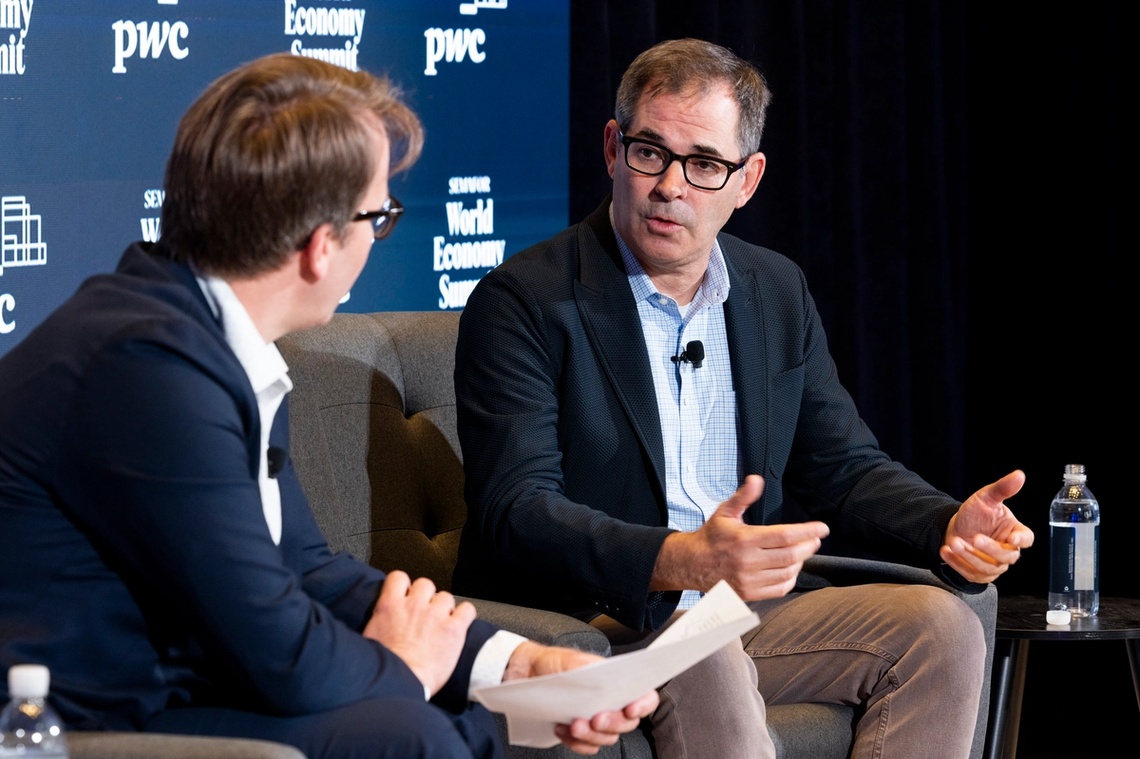 Kris Tripplaar/Semafor Kris Tripplaar/SemaforCoreWeave’s rocky IPO debut can be attributed to Wall Street’s lack of understanding of the business, CEO Michael Intrator said Friday at WES. “We are bringing a new business model to the market, and the validity of that model is being debated every day in the stock price by a lot of people who don’t have a ton of information or a track record with the company,” company,” he told Semafor’s Reed Albergotti on stage. Intrator doesn’t expect markets to fully understand the business for at least a few years, and only then will investors be able to accurately value the company, Intrator said. Before entering the public market, it took private investors and lenders a year with CoreWeave to really get what the company does, why, and how to finance it, Intrator said. Though CoreWeave scaled back its public offering last month, it was the largest US tech IPO since 2021 amid a massive slump in the IPO market — and a test to Wall Street’s perception of the future of AI. CoreWeave’s stock fell shortly after launch and then recovered, now trading around its IPO price. The discrepancy between tech innovation and market response was also on display when DeepSeek’s R1 model hit the market earlier this year. Wall Street flocked from AI stocks en masse. Meanwhile, “my phone blew up” with model-building companies asking how to build more infrastructure and faster, Intrator said. Public market investors are “missing the thematic power of more compute, sooner — more powerful, larger fabrics at gargantuan scale,” he said. — Rachyl Jones
|
|
 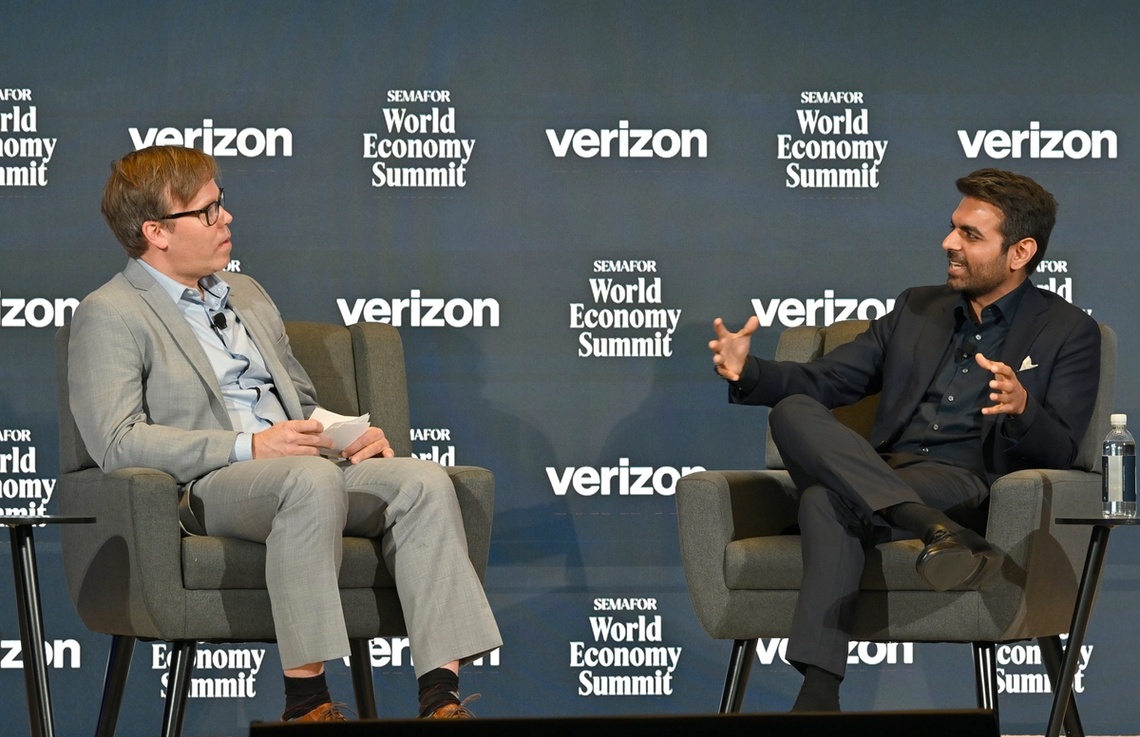 Shannon Finney/Getty Images for Semafor Shannon Finney/Getty Images for SemaforBusiness community members in attendance at Semafor’s WES this week emphasized the importance of AI development, both for their own companies and for national competitiveness. Andreessen Horowitz general partner Anjney Midha said the US has no choice in the AI race with China: “We must win.” Snap CEO Evan Spiegel echoed the sentiment, calling the technology “mission-critical to our country’s future.” While the importance of AI in keeping the US as the tech global leader has long been a talking point for executives, the conversation has shifted slightly from costs and efficiencies in AI innovation to sparking their own patriotism, or at the very least, the desire to serve a common national purpose in step with the new administration. Despite some concerns that Trump’s policies, like planned tariffs and research cutbacks, would impair the tech industry, most top tech executives have been spirited about the administration’s agenda, including Snap’s chief and co-founder, who complimented the president at WES. The Trump administration is “very focused on the success of artificial intelligence,” Spiegel said. What the industry sees is a “lighter-touch regulatory approach until we have more clarity on the areas where there are real risks that do need to be regulated.” |
|
 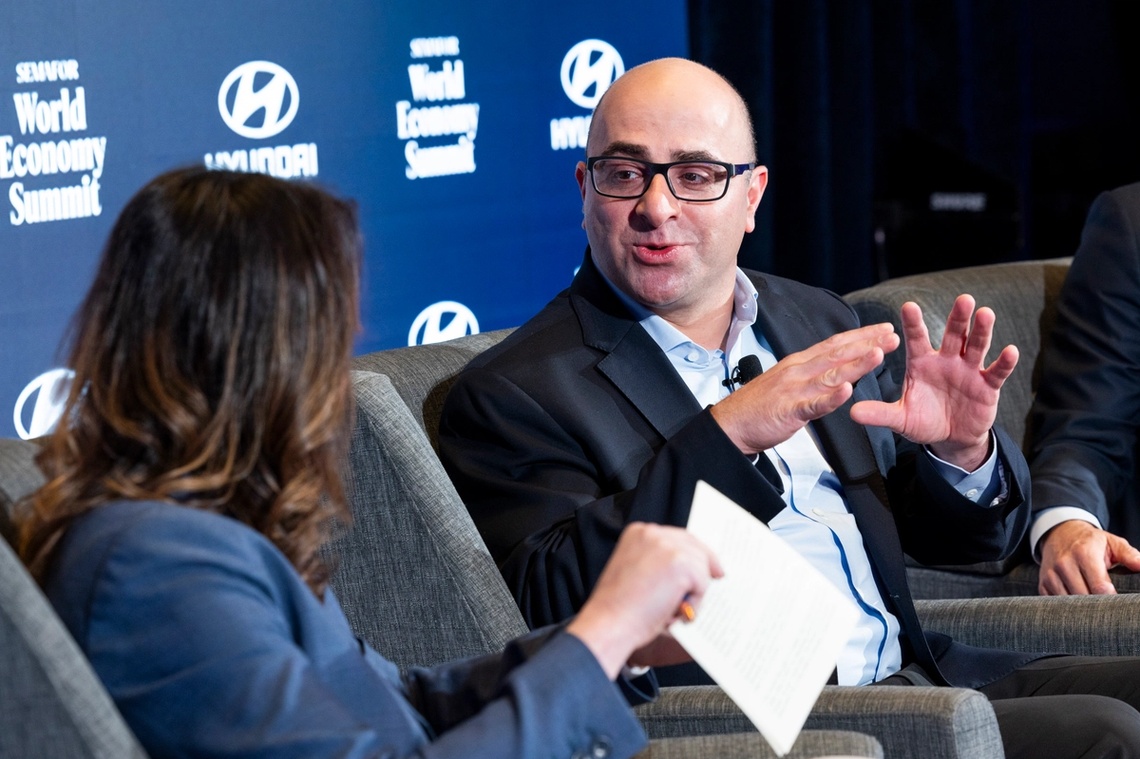 Kris Tripplaar/Semafor Kris Tripplaar/SemaforIt’s easy to get stuck in the Silicon Valley bubble, imagining a world with autonomous trucks moving freight across the country and humanoid robots unloading it. Semafor’s Liz Hoffman spoke with a CEO whose business is a prime candidate for incorporating such technologies, but he’s not holding out for the developments. Mario Harik, who runs transport company XPO, said drivers have roughly 15 stops per day, so until the technologies “get really advanced, it’s gonna be a long time before that job can be automated.” Robots also, naturally, lack the human touch that can help acquire and retain customers, he said. “When you’re picking up and delivering freight, you have somebody on the other side of that dock that you’re interacting with, and that customer has a choice,” Harik said at WES. “They can go with company A. They can go with Company B. They usually pick service.” What’s currently more useful to XPO is AI that helps optimize freight movement by minimizing the number of miles drivers are on the road, he said. It does so by reconfiguring which products go in which truck, and mapping out the most efficient stops drivers will make. |
|
 Ezra Klein is on a book tour — you may have heard his voice on some of your other favorite podcasts talking about Abundance. Today, Ben and Max also talk to The New York Times columnist and host… but you won’t hear anything about the book (you’ll just have to buy it). Instead, they ask Ezra what he’s learned about the media and podcasting through this latest tour, how the “abundance” framework might apply to media, and if Trump will go after the press next. They also discuss how he’s become a rare media celebrity for liberals, why his fans feel saner listening to him — and how that may not be a good thing. Listen to the latest episode of Mixed Signals now. |
|
 The collusion question. Federal Trade Commission Chair Andrew Ferguson raised the prospect of further action in response to the 2021 removal of Trump from social media platforms. “I’m not saying there was collusion” among the social media platforms that took down Trump’s account as he vocally challenged his 2020 election loss, Ferguson said Wednesday at WES. “But the coincidence of this suggests — maybe purely conscious parallelism — or collusion. And if it’s the latter, it’s a real problem.” 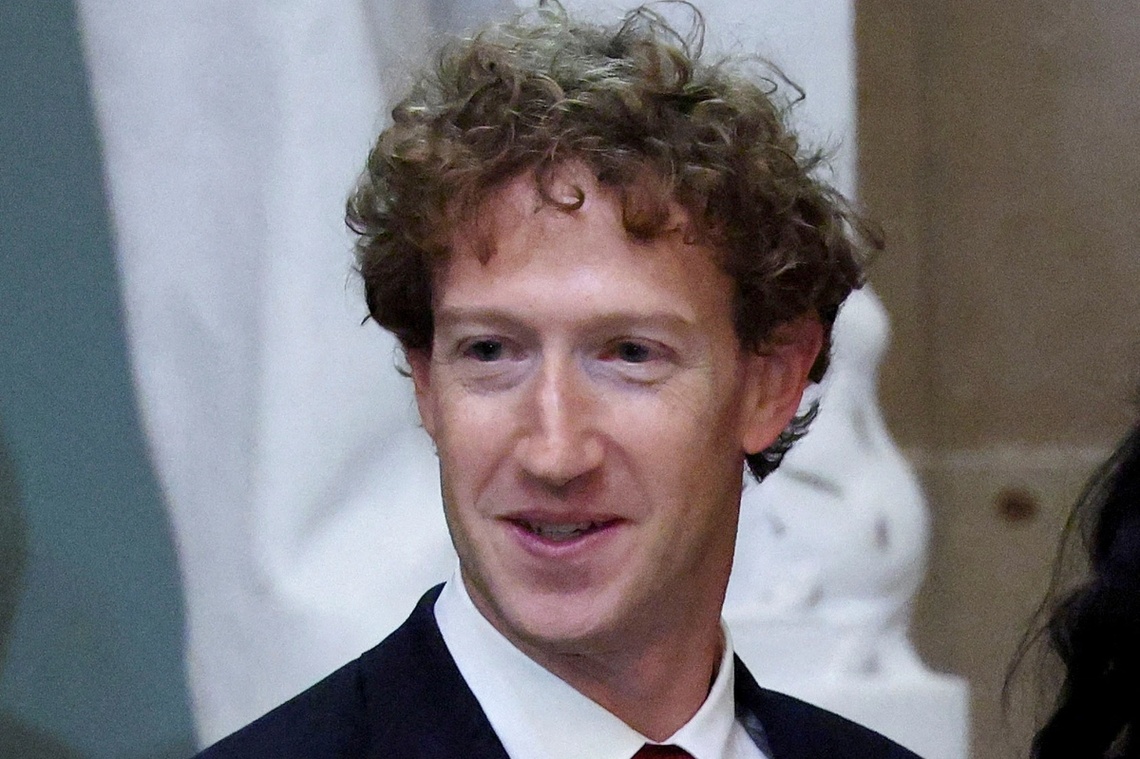 Evelyn Hockstein/File Photo/Reuters Evelyn Hockstein/File Photo/ReutersIn response to an executive order issued during Trump’s first term, the FTC in February launched an inquiry into tech censorship, asking for public comments from people alleging harm by platforms that restricted their speech. “No one has ever investigated what was happening in 2020, 2021, when all these platforms seemed to march in lock step on an issue for which there isn’t objective inputs,” he said. |
|
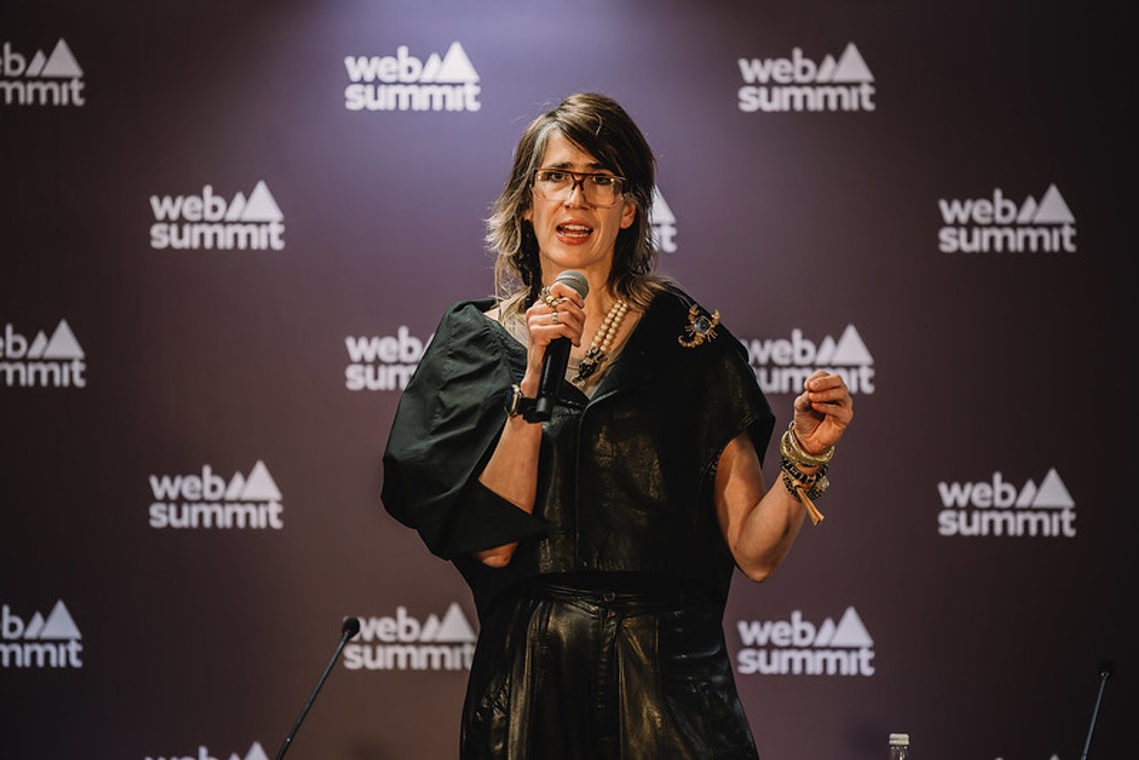 Web Summit/Flickr/CC BY 2.0. Web Summit/Flickr/CC BY 2.0.Many musicians have taken a stand against AI in music. Imogen Heap has a different approach. The Grammy-award winning artist with more than 20 million monthly listeners on Spotify released a series of song generation tools through AI music platform Jen. Users describe what they want their song to be about and select one of five Heap songs to serve as the acoustic style. Jen then produces a complete tune for users. The company is working with other artists to offer their song styles on the platform, according to The Hollywood Reporter, but it didn’t disclose who. “If you’re just looking to ignore AI, well sorry, it’s already happening,” Heap told the outlet. “Artists have to get involved. We can’t let only the people who want to do it for profit or want to do it for their own gain be making the decisions.” |
|
 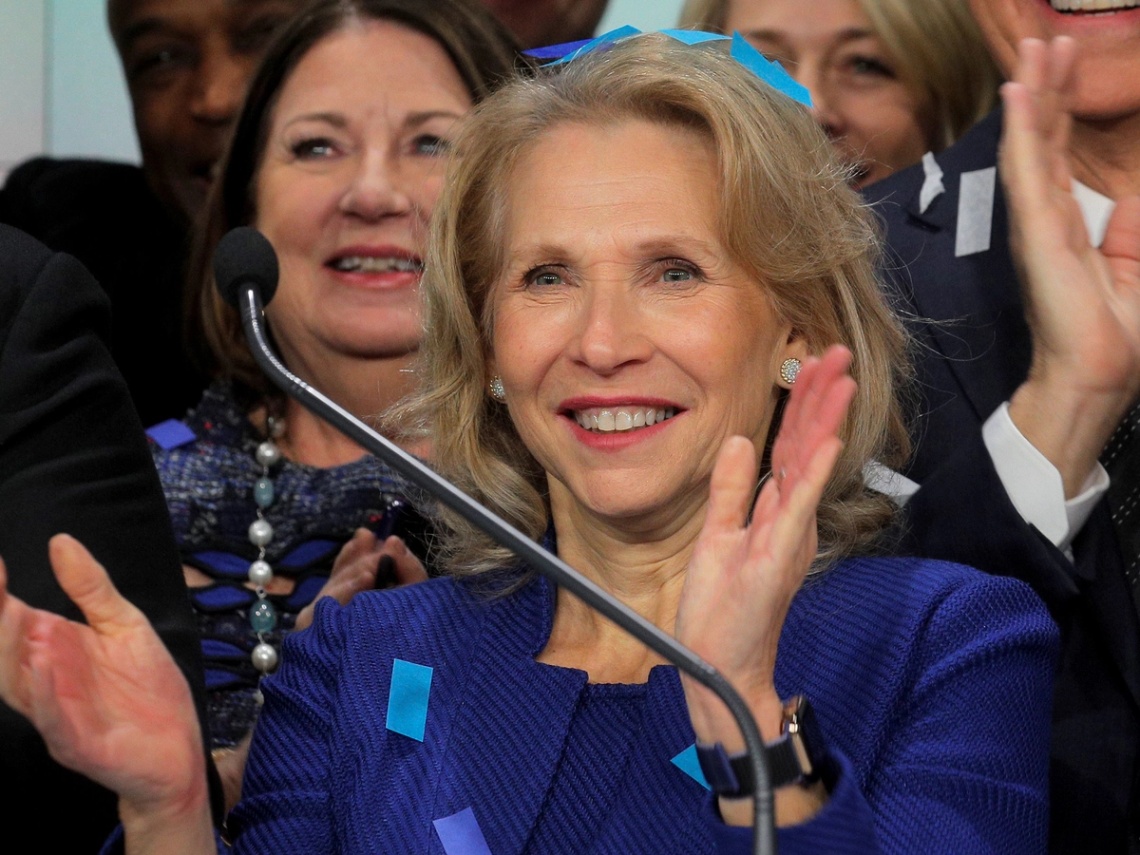 Brendan McDermid/Reuters Brendan McDermid/ReutersParamount owner Shari Redstone in recent days sought to know which upcoming 60 Minutes stories were about President Donald Trump, according to two people familiar with the situation — triggering a series of events that ended with the Tuesday resignation of the show’s longtime producer, Semafor’s Max Tani reports. Producer Bill Owens resigned abruptly this week, complaining that he no longer had the editorial independence to run the iconic Sunday evening news show. |
|










